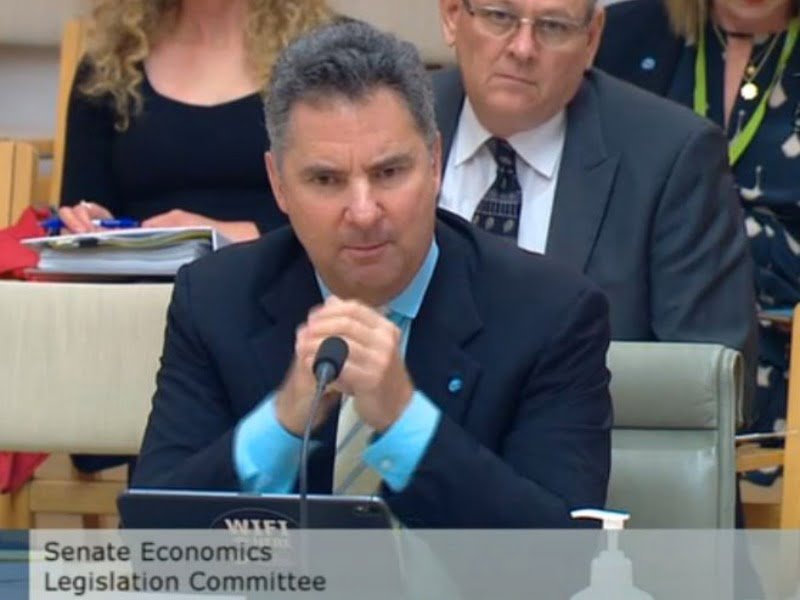CSIRO chief executive Dr Larry Marshall has explained why the agency sensationally dumped the team behind the seL4 microkernel, saying he did not believe it was feasible to spin out the research in Australia and that it didn’t fit with the agency’s new focus on AI.
The Trustworthy Systems team, which developed the extremely hard-to-hack microkernel in use around the world and who are regarded as world-leading in the field, sits within CSIRO’s digital arm Data61 but was dropped by the agency last month.
They quickly received interest from a number of potential overseas buyers, before receiving a funding lifeline from the University of New South Wales last week, which will allow the team to continue working until the end of the year.

The seL4 microkernel allows ironclad separation between software systems so hackers can’t access the important parts of the operating system by entering through a poorly protected hatchway. It claims to be the world’s most highly assured operating system kernel.
Dr Marshall was questioned about the decision to ditch the team at a Senate Estimates hearing on Thursday night.
He said CSIRO did not believe the Trustworthy Systems team could develop a company in Australia around the technology, and confirmed the team still has a number of outstanding contracts which will now be carried by UNSW.
“That would be great if they continued to do that and even better if they found out how to create a company around that. Our conclusion was that it’s not really feasible in Australia, which is why we chose to discontinue that work,” Dr Marshall told the Senators.
“The challenge with that technology is it is very mature and it’s open-source, so it’s difficult to see an opportunity to build industry or to drive a national benefit there. Given our priorities are artificial intelligence, we chose to pursue that and focus our attention where we can drive better national benefit.”
seL4 developer Dr Gernot Heiser has previously challenged this notion, saying there is still much more research to be done in the area.
“seL4 is only the starting point for achieving trustworthiness in computer systems. It’s as if over 100 years ago people said combustion engines were a solved problem once it was shown they could power a car,” Dr Heiser said on his blog.
“Fact is that while seL4 is mature enough to be deployed in the real world, there’s plenty of fundamental research work left on seL4 itself, and there is far more research left on how to achieve real-world trustworthy computer systems. It’s not just sprinkling a bit of seL4 fairy dust over a system while making it trustworthy.”
Dr Marshall said the decision in the early 2000s to sell the microkernel to Qualcomm for a one-off fee rather than under a licencing deal was “unfortunate”.
“That technology has gone through 2 billion mobile devices but unfortunately there’s no ongoing royalty arrangement with that deal, it was done back in that time,” he said.
Dr Heiser has previously criticised CSIRO’s decision to defund his team.
“Here is an absolutely recognised, world-class, world-leading asset that’s unique in its composition and its track record and ability to do outstanding research that’s being abandoned and destroyed,” he told InnovationAus last month.
In 2006 the Trustworthy Systems team was spun out as Open Kernel Labs. This company was acquired by General Dynamics in 2012, and its Australian office has since closed. The seL4 microkernel was released under an open-source licencing in 2014.
The seL4 team are among 70 potential job losses at Data61 as the agency undertakes a significant “reshaping” that will see it primarily focus on AI.
Dr Marshall confirmed this is a “narrowing” of the agency.
“Data61 was quite broad, and it’s going to be a little more focused and narrower going forward, particularly around focusing on AI,” he said.
“The 70 people are in areas that weren’t necessarily related to that direction. Sometimes they can be retrained and other times they can be moved elsewhere.”
He said no-one at Data61 has received an involuntary redundancy yet as a result of this decision, but employees who can’t be retrained in a new area may be let go.
“Because of that focus, some of the people working in other areas may not be able to retrain to work in the other areas. With 100 new positions, there are about 70 people who may not be able to transition, but I don’t think it’ll be that many,” Dr Marshall said.
“It takes a few years for that to happen and for people to retrain or move out of the organisation. People have been advised about what positions won’t be continuing under the new structure. They’re then given information progressively over what the new roles are.
“It’s quite some time between advice in relation to whether the position is continuing and whether someone might want to accept a redundancy as a result of that.”
Do you know more? Contact James Riley via Email.


It’s lucky Dr Marshalls focus is on AI.
So, if Dr Larry Marshall, believes the research program couldn’t or wouldn’t be commercialized in Australia, can he please explain as the why China and Singapore reacted so quickly to procuring the research?